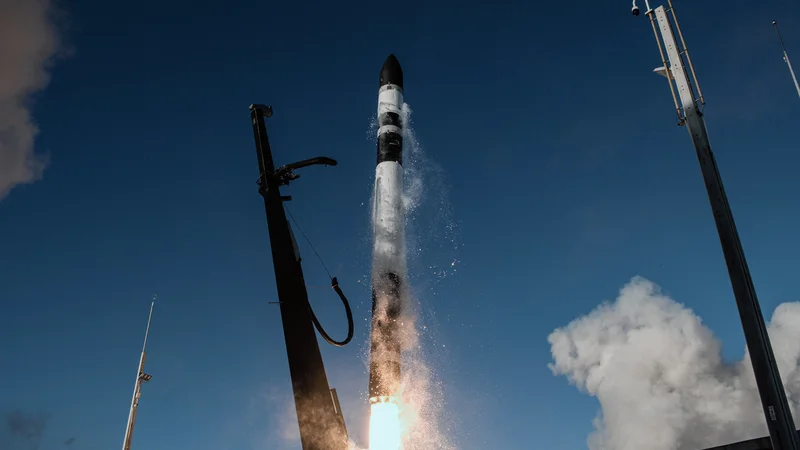So, SpaceX just set another record. The 139th launch of the year. Pop the champagne, right? The news cycle is eating it up, splashing glossy photos of a Falcon 9 tearing through the Florida night sky. It's a testament to the relentless, awe-inspiring pace of Elon Musk's space empire.
Except this time, they threw the damn rocket in the trash.
That’s the part that gets buried under the headline. This record-breaking launch, this celebrated milestone, was achieved by turning their supposedly revolutionary, reusable rocket into a one-and-done, disposable can. The Falcon 9 first stage that carried the SpainSat NG-2 satellite took its 22nd and final flight, plunging into the Atlantic Ocean without any of the usual fanfare of a pinpoint landing. We’re supposed to see this as progress, but it feels more like a weird, expensive throwback.
The Fine Print on Reusability
Let's get this straight. The entire sales pitch for SpaceX for the last decade has been reusability. It was the magic bullet that was going to slash the cost of access to space and change everything. And for the most part, it has. We’ve all gotten used to the incredible sight of two boosters landing in perfect synchrony. It’s become routine.
But this mission was different. The payload, a beefy 6.1-ton Spanish military communications satellite, needed an extra kick to get to its high-altitude geosynchronous transfer orbit. So, SpaceX did what the old guard used to do: they stripped the rocket for parts. Off came the landing legs. Off came the grid fins. All that weight-saving hardware was ditched to squeeze every last drop of performance out of the machine, all so it could hurl a military asset into the void before becoming fish food.
It’s like owning a state-of-the-art, self-driving electric truck, but to deliver one really heavy couch, you have to disable all the smart features, rip out the seats, and then drive it off a pier. Sure, the couch got delivered, but don't stand there telling me what a revolutionary trucking company you run. You just did what everyone else has been doing for 70 years, only with more steps. Is this the limit of the Falcon 9's promise? Is the reusability revolution conditional on not having to lift anything too heavy?

This was the 139th launch of 2025 for SpaceX. It's a huge achievement. No, scratch that—it's a huge number. There's a difference. We're so obsessed with the cadence, the sheer volume of launches, that we don't even blink when the core premise of the company's innovation gets tossed overboard for convenience. While this was happening in Florida, they were prepping another SpaceX Falcon 9 rocket to launch from Southern California. How to watch livestream out in California, getting ready to send up another batch of Starlink satellites. It’s a conveyor belt to orbit, and sometimes a few parts just have to fall off the line.
A "Palpable Example of Progress"
And what was so important that it justified ditching a multimillion-dollar booster? A satellite that will provide "secure communications" for the Spanish government, with functionality also offered to the EU and NATO. It’s a military bird, plain and simple.
Spain's Minister of Science, Diana Morant, called it a "palpable example of the Ministry’s commitment to development, progress and innovation." That’s a nice, clean translation. My cynical Ryder-translation? "We've put a very expensive piece of hardware in the sky so our generals and politicians can talk to each other without being listened to." This isn't about exploring the cosmos or connecting the world. It's about military advantage, funded by taxpayers. Offcourse, they dress it up in the language of innovation, because that sounds so much better than "geopolitical chess piece."
The whole thing feels like a shell game. SpaceX gets to break a launch record and claim another victory. Hisdesat and Airbus get their government contract fulfilled. And the public gets a pretty light show and a press release about "progress." But what's really happening? We're normalizing an insane launch pace that prioritizes quantity over the very principles that were supposed to make it all sustainable. They're launching rockets faster than I can make coffee in the morning, and for what...
I get it, physics is a harsh mistress. Sometimes you just need the extra delta-v. But the narrative is what gets me. The story being sold is one of non-stop, forward-moving innovation. The reality seems a lot messier, a series of compromises where even the most groundbreaking technology is still expendable when a government contract demands it. Then again, maybe I'm the crazy one for expecting consistency from a billionaire who names his rockets after spaceships from sci-fi novels.
So We're Just Ditching Rockets Again?
Let's be real. The "reusability revolution" is a fantastic marketing slogan, but it's not a religion. It's a business calculation. When the payload is valuable enough and the orbit is tough enough, even SpaceX will treat its hardware like a disposable razor. This record-breaking launch wasn't a triumph of reusability; it was a triumph of pragmatism. It proves that at the end of the day, the mission is king, and if the mission requires taking a step backward and chucking your tech into the ocean, so be it. The record books won't mention the asterisk, but we should.

